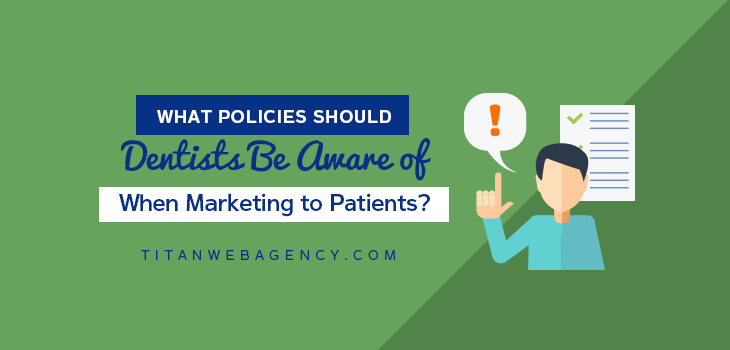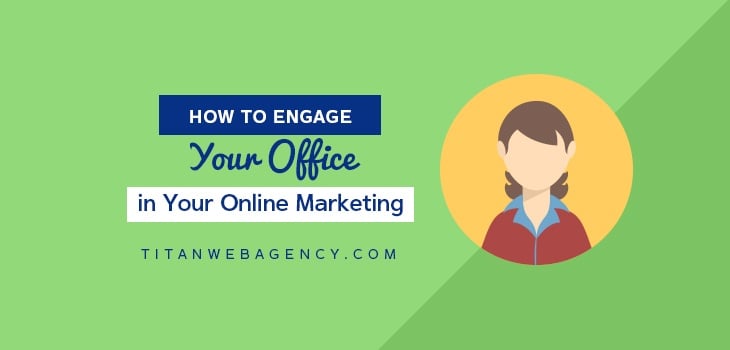Disclaimer
Titan Web Agency makes its best effort to include accurate information in this and each blog post. Due to the sensitive nature and legal ramifications of this post, please consult an attorney to ensure your compliance. This post does not constitute legal advice.
Imagine a single social media post costing your dental practice thousands in fines and irreparable damage to your reputation. As of February 2025, 5.56 billion individuals worldwide were internet users, and 5.24 billion of them, or 63.9% of the global population, were social media users.
With so many people interacting on platforms like Facebook, Instagram, and TikTok, the potential for accidental HIPAA violations has never been higher. A simple Instagram post, Facebook comment, or TikTok video could inadvertently expose protected health information (PHI) and result in significant HIPAA violations.
We understand the challenges of balancing online visibility with patient privacy. At Titan Web Agency, we help dental practices grow through strategic digital marketing, including effective review management, and we’ve seen firsthand how one misstep on social media can cause long-term damage to a practice’s reputation and finances.
In this post, we’ll discuss the HIPAA risks dentists face on social media, share real-world examples of costly violations, and give you actionable tips for staying compliant while maintaining a strong online presence.
Navigating HIPAA Rules in the Social Media Landscape
When it comes to HIPAA and social media, it’s essential to understand the rules that guide how patient information is shared in digital spaces. The Health Insurance Portability and Accountability Act (HIPAA) was enacted in 1996, long before the rise of social media platforms. As a result, HIPAA does not directly address social media in its regulations. However, that doesn’t mean social media is exempt from the act.
At its core, HIPAA protects protected health information (known as PHI) from unauthorized access and disclosure. Any information that can identify a patient, including health conditions, treatment history, or personal identifiers, including names and contact details, must be handled with care, especially when shared online.
Under HIPAA, PHI is broadly defined and includes any health-related data that can be linked to a specific individual. So, while social media is a great tool for promoting your practice, posting even a seemingly innocent comment or picture could unintentionally expose sensitive information.
For example, sharing photos of a patient’s smile or treatment results without proper consent could be considered a HIPAA violation. To avoid these pitfalls, it’s crucial to understand what constitutes PHI and how to protect it while maintaining an engaging social media presence.

What is Considered a HIPAA Violation on Social Media?
It’s easy to overlook the risks of sharing information online, but dental practices must be aware of what constitutes a HIPAA violation on social media to avoid costly penalties and protect patient privacy. Below are some of the most common violations that can occur:
1. Posting Patient Information Without Authorization
One of the most significant violations is posting identifiable patient information on social media without written consent. This includes sharing anything that can be tied back to an individual, such as images, health conditions, treatment details, and more. Even if a patient’s name is not included, if enough identifying information is shared, it can still be considered a violation.
2. Responding to Reviews in a Way That Confirms Patient Relationships
While it’s tempting to respond to online reviews, doing so in a way that indirectly confirms or discusses a patient’s treatment can be a serious violation of HIPAA. A simple "We’re glad you had a great experience, Sarah!" could expose information about the patient’s treatment or confirm their relationship with your practice, which is prohibited without explicit consent.
3. Sharing PHI in Comments, Messages, or Group Discussions
Whether in public comments or private messages, sharing protected health information (PHI) in any form on social media is a HIPAA violation. This includes not just posts but also comments or group chats where patient-specific details are discussed. HIPAA still applies even if the conversation seems private or is limited to a smaller group.
4. Employees Posting Images or Case Details Without Consent
All employees involved with a patient’s care must be cautious about what they share online. Posting images or details about a case without the patient’s consent can lead to significant violations, even if the information is anonymized. Dental practices should remind staff to avoid posting about any patient-related matters unless there’s clear authorization in place.

Legal & Financial Consequences of HIPAA Violations on Social Media
A single misstep on social media can have devastating consequences for dental practices, both legally and financially. The repercussions of a HIPAA violation can go far beyond fines—lasting damage to your practice’s reputation and patient trust can be just as costly. Here's what you need to know:
1. Fines and Lawsuits Resulting from a Single Post
HIPAA violations can result in significant fines, with penalties ranging from $141 to $2,134,831 per violation, depending on the level of culpability. Civil monetary penalties are enforced based on the severity of the violation. Criminal penalties can be imposed for intentional violations, leading to higher fines and even potential imprisonment. The Office for Civil Rights (OCR) within the U.S. Department of Health and Human Services (HHS) enforces these fines.
Whether accidental or careless, a single post can open the door to these financial burdens. For example, if a post unintentionally discloses a patient’s medical information, the practice could be liable for fines that quickly add up to thousands or even millions of dollars.
2. Reputation Damage and Patient Trust Loss
Perhaps the most significant consequence of a HIPAA violation on social media is the damage to your reputation. Once a breach occurs, patients may lose trust in your practice’s ability to protect their sensitive health information. Word-of-mouth, especially on social media, can quickly spread, leading to the loss of existing patients and difficulty attracting new ones.
In the highly competitive dental industry, reputation is everything. A tarnished reputation can lead to a drop in patient retention and a significant decline in business growth. Patients may even switch to competitors who they believe offer more secure and private care. The long-term financial impact of losing patient trust can far exceed the cost of a fine.
Case Studies: Real-World Social Media HIPAA Violations
Social media can quickly turn an innocent post into a serious HIPAA violation. Even if a patient's name isn't mentioned, sharing any form of protected health information (PHI) online can lead to major consequences. Below are a few real-world examples of how simple social media mistakes have resulted in significant HIPAA violations.
Elite Dental Associates and Yelp: A Costly Oversight
A Dallas dental practice, Elite Dental Associates, faced a $10,000 HIPAA settlement after disclosing protected health information (PHI) in responses to patient reviews on Yelp. In one instance, the practice publicly included a patient’s name, details about their treatment, insurance coverage, and cost of services.
This response triggered a complaint to the Office for Civil Rights (OCR), which led to an investigation revealing similar past responses containing PHI. While the final settlement was relatively modest, the potential penalties could have been much higher—up to $50,000 per violation, with a possible total of $1.5 million due to multiple unaddressed infractions.
New Vision Dental: HIPAA Violations from Responding to Yelp Reviews
In a recent case, the Office for Civil Rights (OCR) fined New Vision Dental in California $23,000 after it was found to have disclosed patients’ protected health information (PHI) in response to reviews on Yelp. Some patients had posted anonymously using monikers, but the practice’s responses included their full names, treatment details, and insurance information.
OCR's investigation also revealed broader compliance issues, including inadequate privacy policies and failure to train staff properly on HIPAA regulations related to public platforms. As part of the settlement, the practice was required to adopt a corrective action plan and undergo two years of compliance monitoring.
How to Use Social Media Without Violating HIPAA
Social media can be a powerful tool for dental practices—as long as it’s used with care. Knowing what’s safe to post and how to navigate patient-related content is key to maintaining HIPAA compliance.
HIPAA-Compliant Social Media Strategies for Dental Practices
What CAN you post safely? General dental tips, oral health education, team highlights, quick and fun videos, office tours, office updates, and promotional offers are all fair game—as long as they don’t include any patient-identifiable information.
Educational content vs. patient stories: Stick to broad, educational posts that don’t involve patient details unless you have written HIPAA-compliant authorization. For example, sharing advice on teeth whitening is fine; sharing how a specific patient achieved their results is not—unless you have explicit permission.
Testimonials and before-and-after photos: You can post these, but only after obtaining proper written consent from the patient. Make sure the consent clearly outlines what will be shared, where, and for how long. Avoid including any additional identifiable information unless the patient has provided written consent.
Do you need a HIPAA consent template? We've got you covered. Check out our template library.
The Right Way to Respond to Online Reviews Without Breaking HIPAA
Responding to patient reviews is a great way to show that you care, but replying incorrectly can lead to costly HIPAA violations.
What NOT to say when replying to patient feedback: Never confirm or acknowledge someone is a patient—even if they’ve identified themselves. Avoid mentioning treatments, appointments, billing, or any personal health details.
HIPAA-safe response template:
“Thank you for your feedback. We take patient concerns seriously and encourage you to contact our office directly so we can address your experience.”
Yes, I understand this is less than personable. I get it. But it's compliant, and it protects your practice. This maintains a professional tone while protecting patient privacy.
HIPAA Training for Social Media Use
Protecting patient data is a team effort. Everyone in your practice—not just the marketing or front desk staff—should be trained in HIPAA-compliant communication.
Why training matters: Unintentional mistakes (like sharing a photo with a patient’s chart in the background) often come from a lack of awareness. Regular training reduces the risk of slip-ups.
How to set up HIPAA-compliant policies:
- Create clear social media guidelines and include them in your employee handbook.
- Outline what is and isn’t allowed in posts, comments, and private messages.
- Require all staff to sign a social media policy agreement.
- Update training yearly or whenever HIPAA regulations change.
Using Technology to Prevent Violations on Social Media
While no social media management tool is HIPAA-compliant or designed to handle PHI, certain platforms can still support your dental practice by helping reduce the chance of accidental oversharing online.
These tools aren't meant to store or flag patient data — instead, they can help you create approval workflows, monitor for general risk terms, and maintain better oversight of your team’s posting activity.
Tools That Can Support Safer Social Media Use:
- Sprout Social – Offers team workflows that let designated users approve content before it goes live. You can set up keyword monitoring for general health terms or sensitive phrases that may raise a red flag.
- Statusbrew – Provides moderation rules and customizable post approvals across platforms. Useful for managing multi-user accounts with tighter control.
- Hootsuite – Helps with post scheduling and team oversight. While it’s not designed as a HIPAA-compliant tool, it can support internal processes that reduce the chance of publishing unvetted content.
These platforms are not designed for HIPAA compliance and should never be used to store or process PHI. Their role is to help your team stay organized, apply consistent content review steps, and reduce preventable errors.
Smart practices to combine with these tools:
- Implement a content approval workflow for every post — even the “quick” ones.
- Assign posting access only to trained staff, and when possible, have the social media policy posted in a high-traffic area that your staff will regularly see and be reminded.
- Conduct regular reviews of your published content and comments.
- Keep your social media policy and HIPAA training up to date, post them in your office, and conduct regular HIPAA training sessions to remind your staff of the importance of following these guidelines.
Technology can’t make your practice HIPAA-compliant — but it can be part of a proactive strategy to reduce risk, improve communication, and protect your online reputation.
Frequently Asked Questions on HIPAA and Social Media
Whether you're a healthcare provider, business associate, or staff member, understanding how patient privacy laws apply online is essential. Below, we've answered some of the most common questions about HIPAA compliance and social media use to help you stay informed and protected.
What do you need to know about social media and HIPAA?
HIPAA strictly prohibits sharing any patient’s Protected Health Information (PHI) on social media without written authorization. This applies even if the information seems harmless or de-identified. Once something is shared online, it can’t be fully retracted, which means the consequences of a misstep can be serious. A HIPAA-compliant social media strategy must prioritize consent, confidentiality, and clear boundaries around what can be shared.
What is one reason that social media increases the risk of HIPAA Violations?
Social media makes it easy and instant to post photos, comments, and videos—sometimes without a second thought. A quick snapshot in the office or a well-meaning shout-out can accidentally reveal a patient’s identity or health information. These unintentional disclosures can still lead to HIPAA violations, even if there was no ill intent.
Do HIPAA social media rules apply to personal accounts or only business accounts?
HIPAA rules apply to all accounts, whether personal or professional. If a healthcare employee shares PHI on their private account without proper authorization, it’s still considered a violation. Just because an account is “private,” the rules still apply. All workforce members must follow HIPAA guidelines, regardless of where they post.
Do all employees need HIPAA training or only those with access to PHI?
All employees should receive training on HIPAA and social media. Even those not working directly with PHI might overhear or see something they could unintentionally share online. Training ensures everyone understands what’s off-limits, how to handle sensitive information and the risks of casual posting.
What's the biggest mistake dentists make on social media?
One of dentists' most common mistakes is responding to patient reviews or comments by including specific health or treatment information. Even when well-intentioned, this kind of response can accidentally confirm a patient relationship or reveal PHI. Another common misstep is sharing before-and-after photos without proper, documented consent. While these issues are specific to social media, they often tie into broader marketing mistakes that can affect patient trust and brand reputation if not handled carefully.
What's the best way to report potential HIPAA violations in my practice?
If you suspect a HIPAA violation related to social media, report it immediately to your designated HIPAA privacy officer or compliance officer. Quick reporting allows the practice to take corrective action, mitigate harm, and avoid larger penalties. Some practices also have anonymous reporting tools or hotlines—ensure you know your internal protocol.
Final Thoughts
Social media can support patient engagement and boost your practice’s visibility, but it can quickly become a liability when HIPAA is overlooked. A single post shared without the proper safeguards can lead to fines, lawsuits, or loss of patient trust.
The good news is that these risks are avoidable. You can confidently maintain a strong online presence without crossing compliance lines with clear policies, consistent staff training, and a firm understanding of what’s permitted.
At Titan Web Agency, we help dental practices grow confidently, ensuring their marketing supports their goals and keeps them protected. If you’re not sure whether your current approach meets these criteria, we’re here to help.
Tyson Downs is the founder of Titan Web Agency, a company specializing in marketing for dental professionals. With an impressive track record of working with over 100 dental practices, Tyson has a deep understanding of the unique marketing needs within the dental industry.
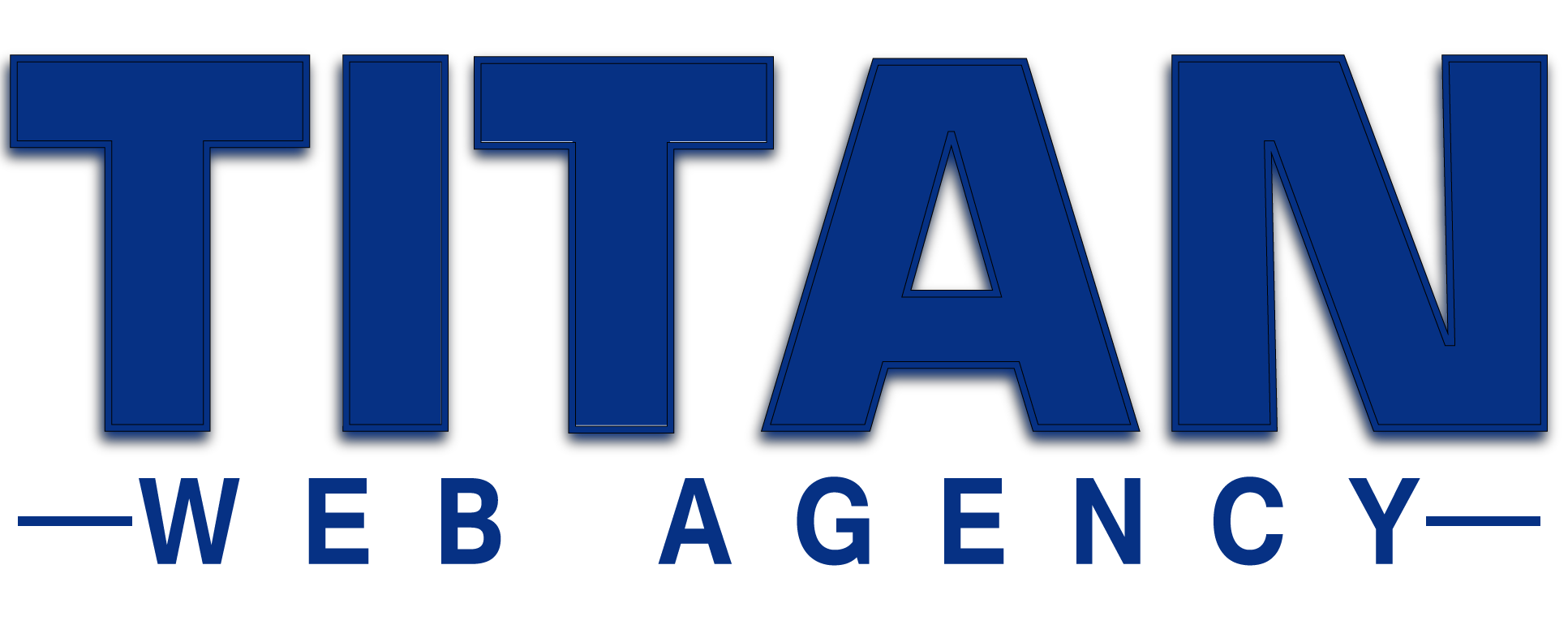








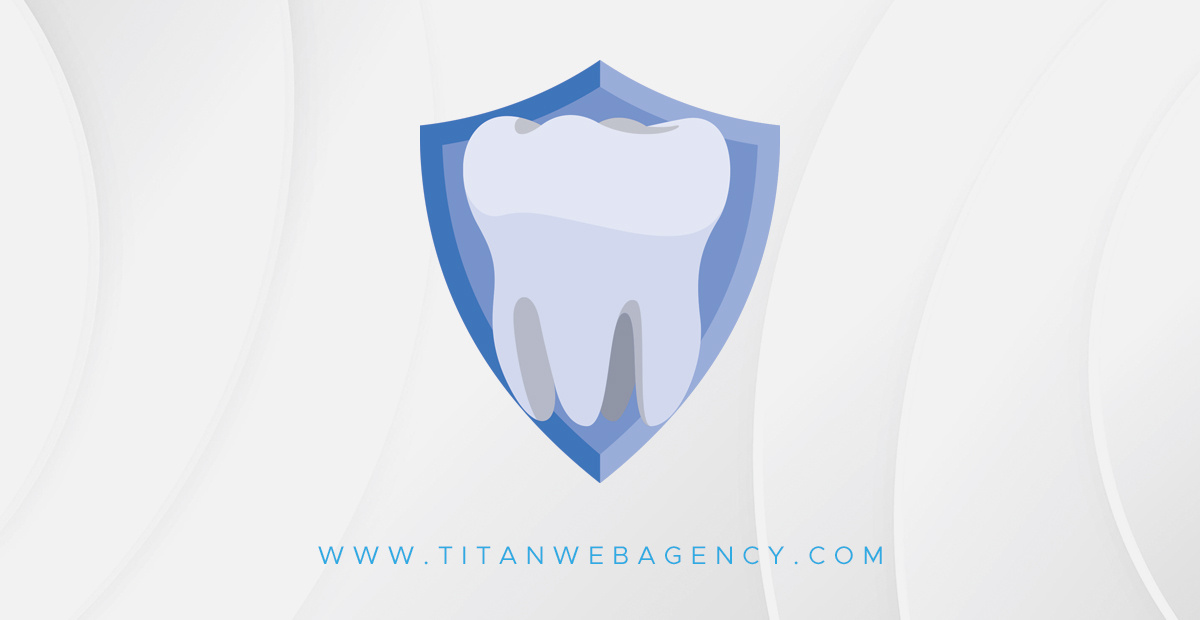


.png)
.png)
